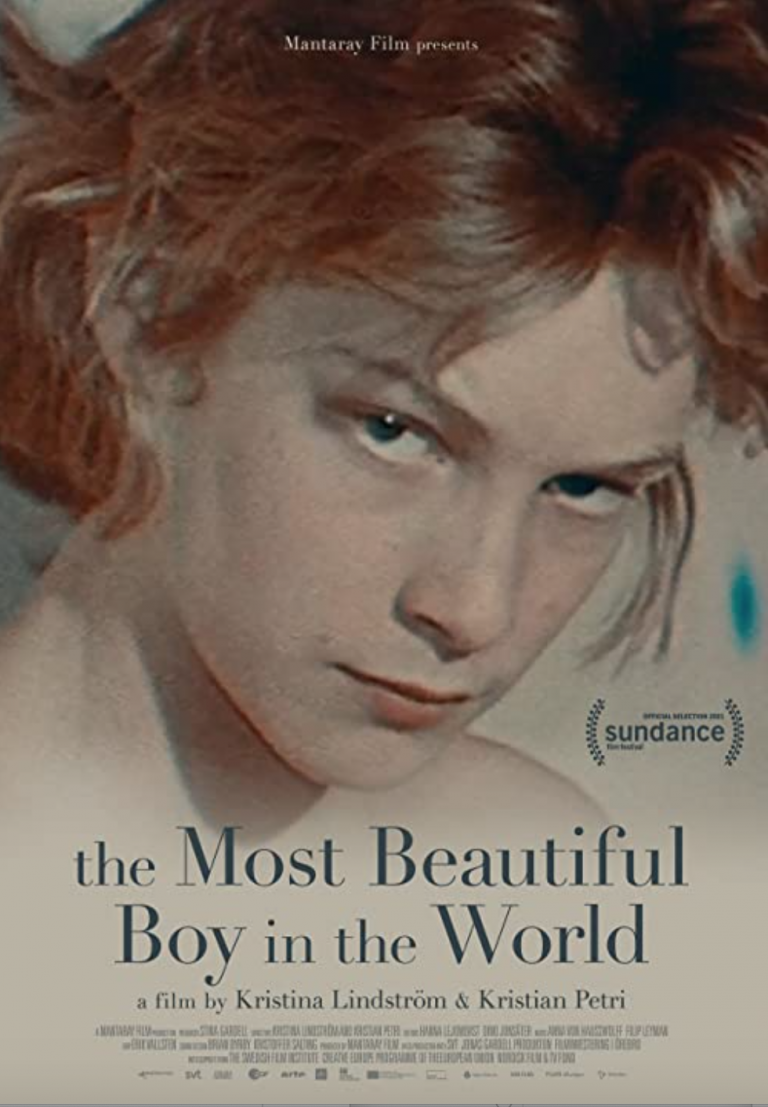
Synopsis : In 1970. The world-famous Italian director, Luchino Visconti is visiting Stockholm due to his new film Death in Venice, based on Thomas Mann’s 1912 novel of the same name. He is looking for a young boy to play the role of Tadzio, a young polish noble. At this point, Visconti has traveled around the whole world and filmed hundreds of boys and finally, after a number of screen tests, fifteen year old Stockholmer Björn Andresen is given the part.
When the film premieres in London 1971, in the presens of Queen Elisabeth and princess Anne, Visconti declares the young Björn Andresen ”the most beautiful boy in the world”. A few months later whilst the film is competing in Cannes, Björn is discovered by a8 Japanese music agent and flown directly from the red carpet to Tokyo to become Japan’s first western icon with a career as a pop star, participating in tv-shows and commercials. But the nomination as ”the most beautiful boy in the world” became an epithet that has come to haunt him for the rest of his life. He became an icon all over the world, and just like his role figure Tadzio, the object for men who desire young boys.
Today, almost 50 years later, Björn is struggling with addiction and questions like why he never loved himself. He is also discovering the truth behind his mothers disappearance and finding the clues to who his father is.
The Most Beautiful Boy in the World is a deeply personal and cinematic film about a person reconciling his past and taking control of his life. But it is also a unique look behind the scenes of one of the world’s greatest film classics, Death in Venice, the structures of power and the cause of it, which recently has become known as #metoo.
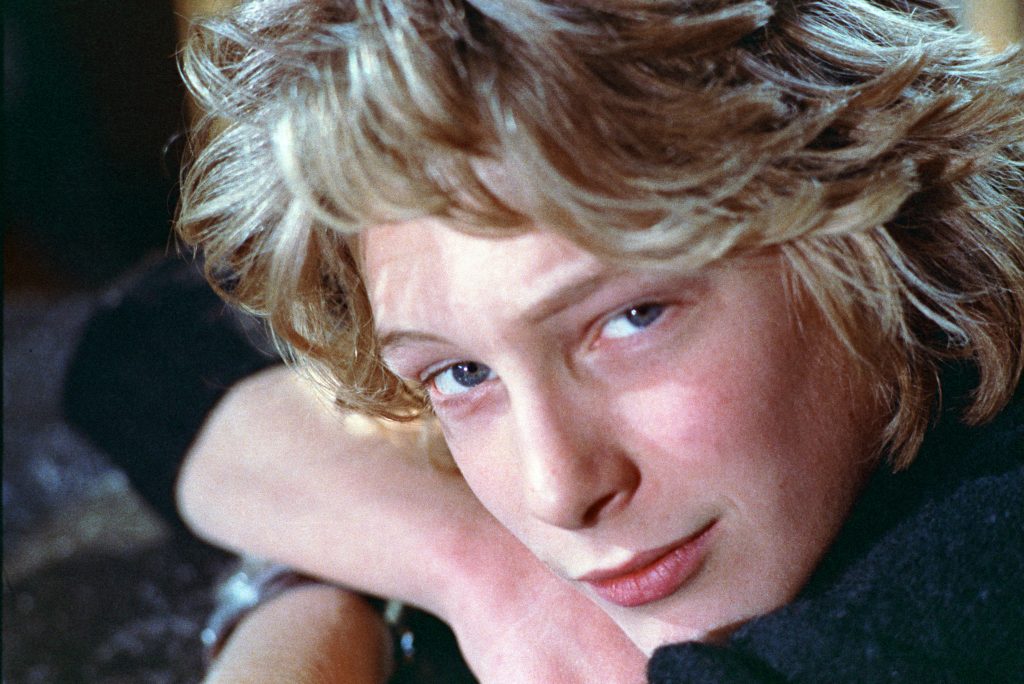
An Exclusive Interview with directors Kristina Lindström and Kristian Petri
Q : Björn Andrésen appears to be a very private person, how did you approach Björn and how did you convince him to be in the movie?
(Kristina Lindström) : I think we’ve done that by asking him and telling him how he would like to do the film, if he would like to be part of the film. And so we had several meetings, building trust, I guess, and he also knew we had also worked together.
(Kristian Petri): We have been working together on a TV series like 20 years ago.
Q : What kind of TV show was that?
(Kristian Petri): It’s a children’s series, it was like for small children, and he was the bad guy. He was chasing the children, you know, scaring them. We had a lot of fun. And I got to know him there. I mean, Well, not like we spend a lot of time together. But I mean, I really liked him. And he had a lot of humor. I remember asking him whether he had any hesitation. He didn’t want to speak about that initially.
(Kristina Lindström) : So it was a process, I would say it was not a way of how we pursued it, because it was something that he talked about it and he reflected on what he would like to expect to do or share. And then when he decided to do it, it was still a continuing process over all these years.
Q : So you must really gain his trust?
(Kristian Petri) : Exactly, trust was very important, I think when we decided to make the film that we initially waited for him, not pressured him into, you know, something that he was not too comfortable with. So we’ve got five years of shooting or waiting for him to feel comfortable about us to tell the whole story.
(Kristina Lindström) : And we were lucky this time, when we started filming him, he was living alone, the single man.
After one summer, he said, I want you to meet Jessica, you know, so it works out great.
(Kristian Petri) : And because we also have a really generous producer that allowed us this time and was also very passionate in making this film. And you know, that was also very crucial, very important.
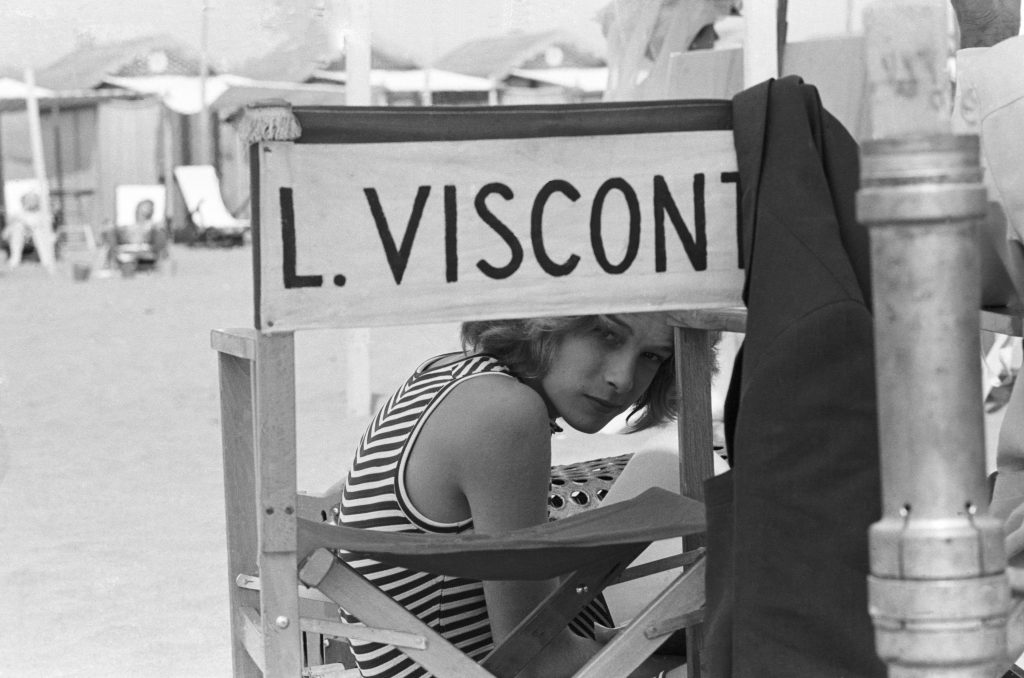
Q : I was fairly surprised that how much archival footage that you guys had, particularly prior to Björn’s film, “Death in Venice”, because those footages must be shot in the 1960s, right? So how do you acquire those archival footages that seems very private.
(Kristina Lindström) : We received those footages through him and we found most of them through his cellar. And his sister had a lot of audio tapes from their relatives that recorded. Some of the footages, we just found those.
(Kristian Petri) : It was a bit crazy because we knew there were footages of Super 8 films, but we didn’t know how much the amount. We have no idea. And all these audio tapes, all the telephone conversation. And a family apparently very keen on documenting each other. It was like he was meant to be actor.
Q : Björn was very close to his grandmother. I mean, his mother was actually leading a bohemian lifestyle. And father, he didn’t even know. So, in a way, he was very close to his grandmother. Could you talk about what kind of relationship he had with the grandmother that stood out for you?
(Kristina Lindström) : I don’t think he lived with his mother when he was a child until she took her life. But I guess he wanted to stay with his grandmother and grandfather, because in Stockholm, he felt safe and secure. And he had some friends. He had his stepfather and his sister lived in Denmark. And he didn’t want to stay in Denmark. In fact, he flew from Denmark to join her grandmother and grandfather. But I don’t think he was referring specifically to his grandmother, but he liked going to school.
(Kristian Petri) : Although he had a tragic story about his mother, but when he was seen as teenagers, go to school with all his friends, and he was playing music all the time. He was really happy.
Q : So let’s talk about , “Death in Venice.” We obviously know that Luchino Visconti was a highly respected director. But the condition of set in “Death in Venice” that might be in question, because Luchino Visconti, he said “ Björn is the most beautiful boy in the world” and he was openly gay, and most of his crew members are also gay. Like Björn’s sister said in the film, “He could become their object of their eyes”, even though they didn’t intend it. Did that make him a little bit uncomfortable on the set? Even the audition in the film, Visconti asked Björn to take his shirt off in the middle of audition, Bjorn was frowning his face a bit.
(Kristina Lindström) : There are two different stories about that. While they were shooting the film, I don’t think that was the problem. For him, it was like a very funny, great summer job in a way. But the problem was after when the film was released, and Visconti declared him as a most beautiful boy in the world and everything changed, then he became object a lot of people’s eyes.
(Kristian Petri) : It was sort of sucked into this whirlwind of fame and parties, people wanting things from him, you know, he was thrown into a world he had no control over anymore as a teenager. He didn’t realize that it was going to be so huge, so big, and actually transformed his life. The safe haven that he had in Stockholm with his friends, when he came back from that experience after the premiere, it changed and it was gone, you know, and he went to Japan, it’s like a dramatic change. He will never come back to it.
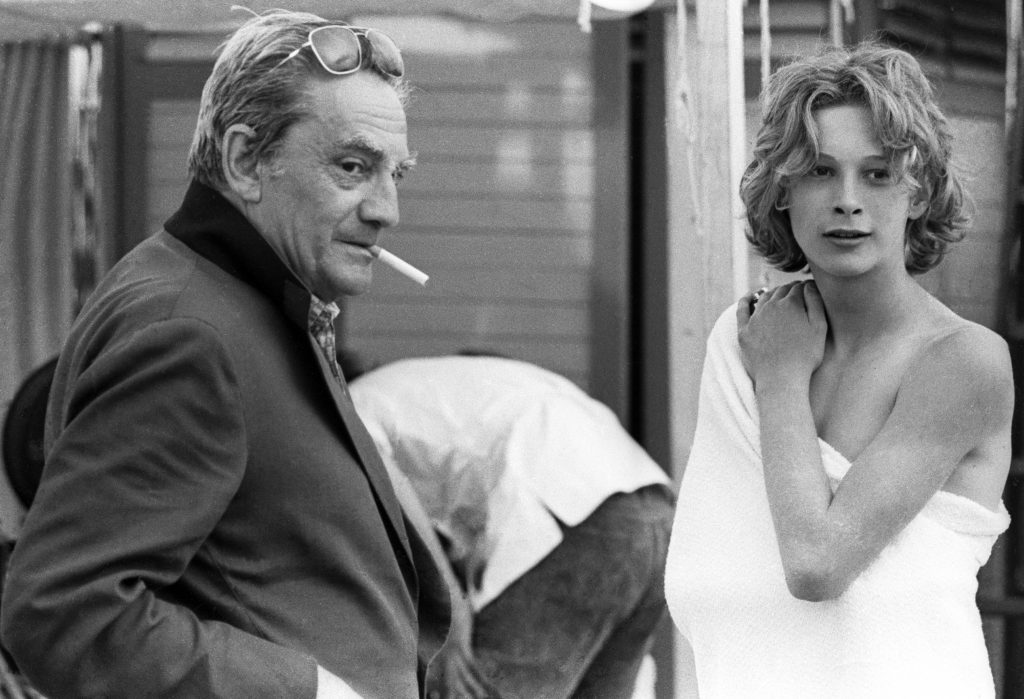
Q : I’m wondering that after he appeared in “Death in Venice”, I assumed that Björn got a lot of offers to be in so many films, but instead he went to Japan to start working in Japan. Why did he make that decision?
(Kristian Petri) : Because I think his fear of success and I don’t know exactly, how his contract worked back then, but I mean, shooting commercials and doing pop music in Japan, he didn’t care about that, because there was no challenge, in a way, but he was still sort of playing a role as actor. While he was in Japan, he was having some options to doing other films.
(Kristina Lindström) : And when he was in Paris, he was waiting for a role, but never happened.
Q : In the film, he’s making some sounds in a computer. And he had a band when he was an a teenager. I’m curious that is he also working in the music industry now?
(Kristina Lindström) : Last several years, he has been appeared in Swedish TV series.
(Kristian Petri) : And a feature length film(“Midsommer”) a couple years ago, and then he is also doing music. Actually, he’s releasing his record, I don’t know when, they’re almost finished. So he had some opportunities doing TV series, I mean, Swedish TV series. But he’s been doing the music for all of hie life.
Q : Manga artist, Riyoko Ikeda who made one of the most popular comic series, “The Rose of Versailles.” In this comic has one of the character named, Lady Oscar, she was modeled after Björn, when you met the manga artist, Riyoko Ikeda, what kind of reaction that you got from Ikeda when she met Björn?
(Kristina Lindström) : She was a very nice person and very respectful when she approached Björn. And I think she wanted to, I mean, I think it’s very interesting on the series of “The Rose of the Versailles”, the reason for choosing Björn was what she said in the film, she incarnated a Bishonen(It means “Beautiful Boy” in Japanese) character.
(Kristian Petri) : She was vert nervous meeting him.
Q : What was the most surprising elements that you found him during the course of shooting?
(Kristian Petri) : I don’t know that’s surprising things, but when you are with Björn for a while, you realize that he’s a very, very funny person. Yeah. And he has a very dry sense of humor. He likes to play around with words.
(Kristina Lindström) : So many times that we were surprised and he was opening doors for us.
Q : I don’t want to get into this subject matter. But in a way, I kind of have to, because It was happened when he was in Japan. You know, during Björn’s stay in Japan, he made some albums that he’s singing in Japanese, he’s also in some commercials. I’m curious that even though he had a good relationship with his manager Max Seki, There’s a point where he drinks medication he didn’t even know what it was, but try to stay positive and stay awake to control his emotions. I wouldn’t call that a child abuse or anything like that. What was his state of mind at that time?
(Kristian Petri) : From what I understand that Max Seki and Björn were working very hard, Sometimes they had long hours of filming, but Björn was not prepare to those types of works, and Björn said that he didn’t even know what those medicines were for.
Q : Maybe some vitamins or something?
(Kristian Petri) : It could have been like some type of medicines for a downer.
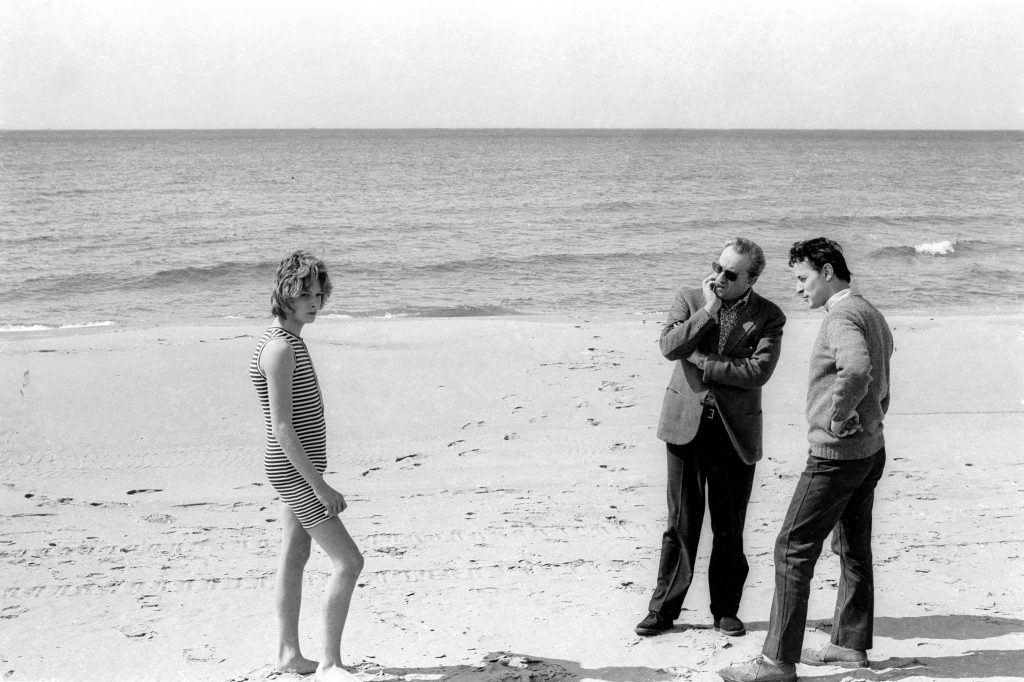
Q: After you shot this film with Björn, what’s fascinated about Björn as an artist?
(Kristina Lindström) : He’s obviously a very good actor, because he’s had a very strong movement, and his timing. He’s also a multi-talented person since he was very young, and maybe that’s also a curse. It’s become very easy to do things because he can play guitar and sing and he can draw too. He’s very creative person.
(Kristian Petri) : I think he has a very strong presence. When he’s in the camera, camera really love loves him.
(Kristina Lindström) : I mean the role that he played in “Death in Venice” as Tadzio, he did something as a child, he certainly filled the room with his strong presence, so if he wasn’t in “Death in Venice”, he wouldn’t have been that person that we’ve known for.
Q : What do you want the audience to take away from this film?
(Kristina Lindström) : Mainly, we want the audience to see the boy(Björn) that he was. And what these unexpected occasions can do with young people. He was in the age that haven’t formed his life yet. So you(people) can determine and orientate these kind of experiences that Björn had.
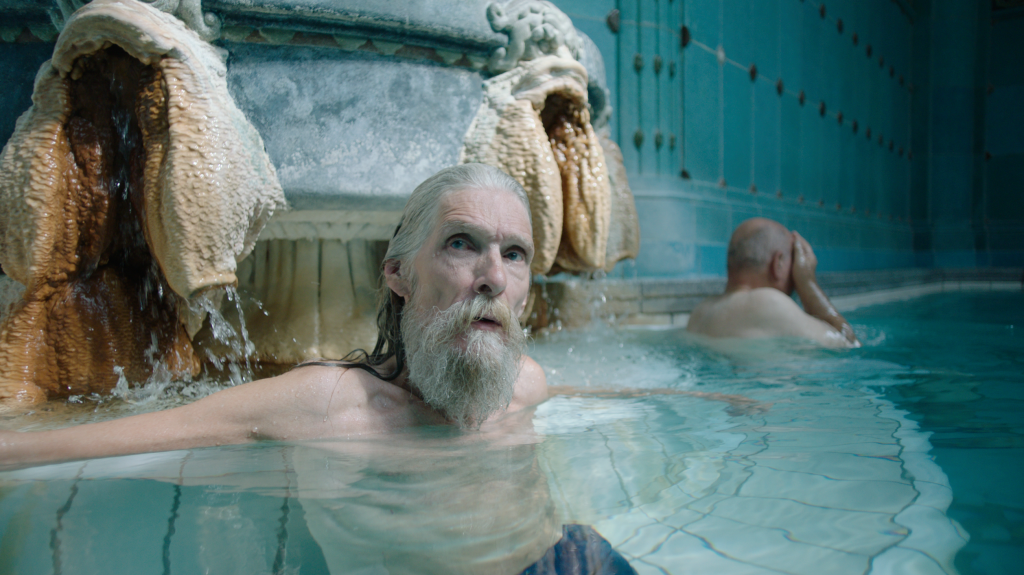
Here’s the trailer of the film.
Opening in Theaters September 24, 2021. The Quad Cinemas in New York and NuArt in Los Angeles.

